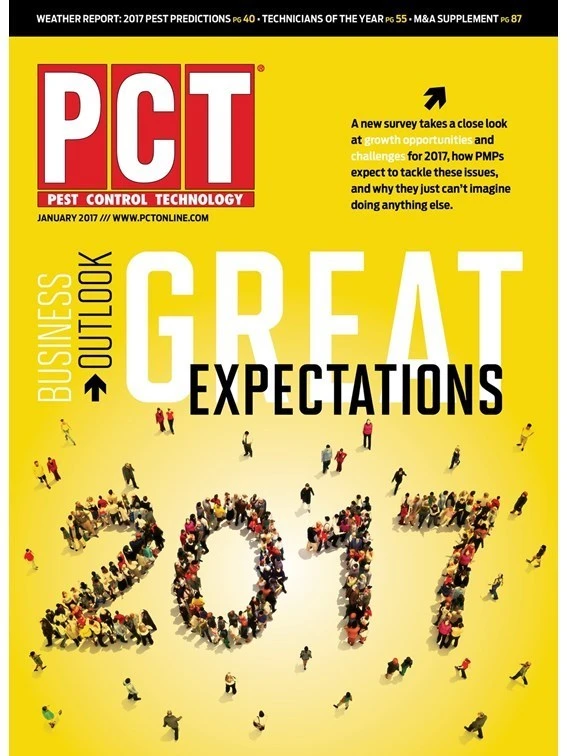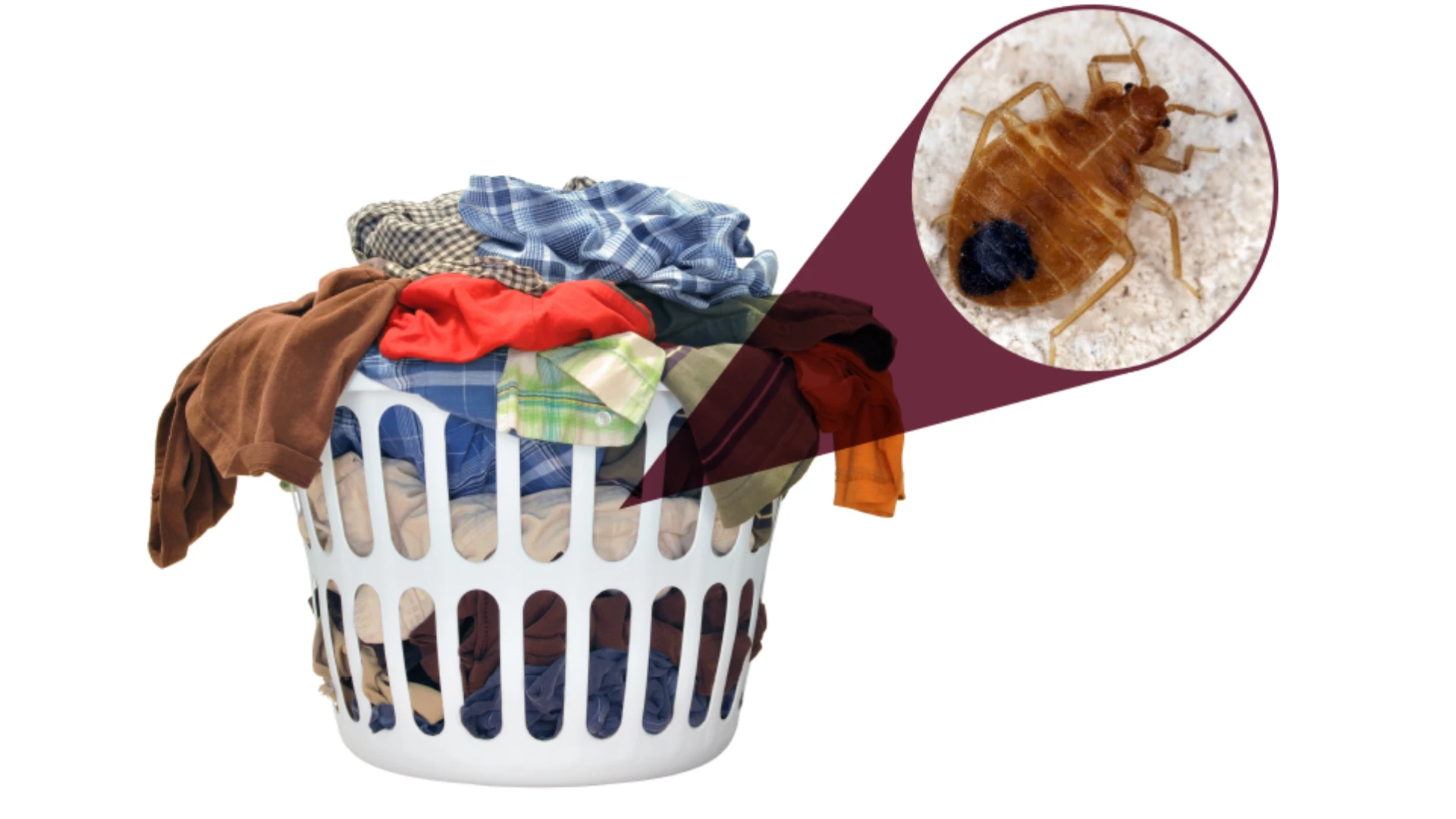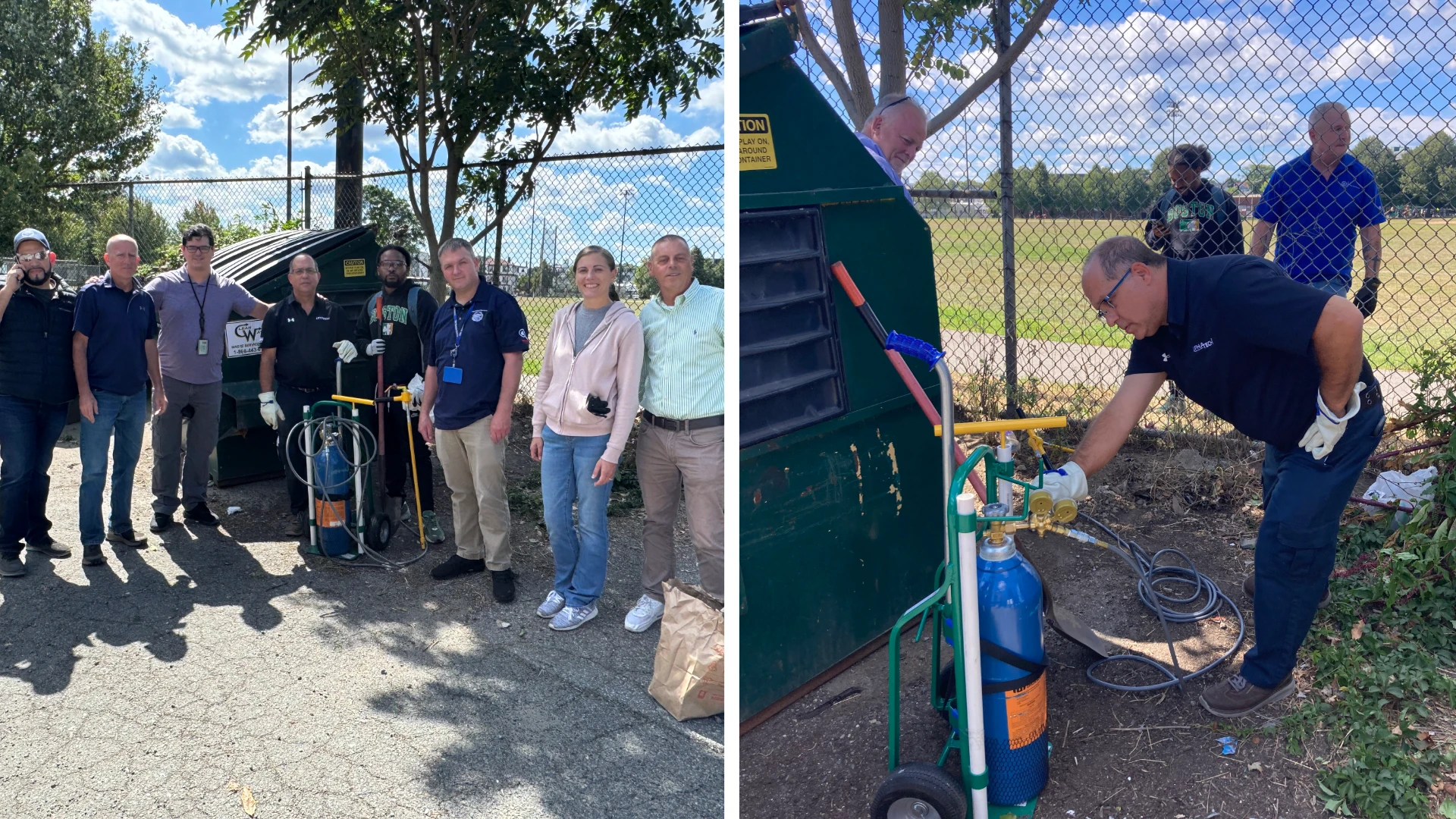
The majority of pest management companies pay technicians an hourly wage plus commission (38 percent) or an hourly wage only (25 percent), according to the PCT-NPMA 2016 Business Outlook survey.
Most plan to give technicians a raise in 2017. About a third of PMPs (32 percent) expect to increase wages 3 to 4 percent; about a quarter (24 percent) plan to up wages 1 to 2 percent; and 16 percent anticipate giving a 5 to 9 percent increase. (Twenty-one percent do not plan any increases.)
While more than half (51 percent) of survey respondents oppose an increase to the federal minimum wage, about the same amount (53 percent) said such a raise would not impact their hiring plans. “I like to think it’s a professional position and we pay people a good wage over and above minimum wage,” said Bill Horgan, president of Debug Pest Control in Chepachet, R.I.

Employees also want the opportunity to grow professionally. As such, McCall Service is creating satellite offices (split off from existing service centers) to help more staffers develop their management skills.
To help new technicians achieve more, faster, Wil-Kil Pest Control and Holder’s Pest Solutions accelerated the career path. A new hire can hit the top tier within five years, instead of waiting decades, by passing Purdue University and NPMA food-processing courses, earning master technician status, and achieving at least three state certifications within the five-year time frame, said Dale Bauerkemper, Wil-Kil Pest Control and Holder’s Pest Solutions vice president. Advancement isn’t based on tenure but on talents developed through education, he explained.
Braman Termite & Pest Elimination formalized its performance evaluation process. When you’re a small company that grew big, everybody’s too busy to pay this much attention; the new HR manager “helped us understand that employees want to hear how they’re performing, how they can do better, what areas they can improve in, what advancement they can have in the company,” Guyette explained.
The company also is making “a gallant effort” to engage employees in every way, he said. One example: An employee appreciation banquet held last year at the Naismith Memorial Basketball Hall of Fame in Springfield, Mass.
Health insurance was a longtime employee benefit at Hersh Exterminating Service. Then the Affordable Care Act came along, providing better coverage at a lower price with some employees qualifying for subsidies that first year. Three years later, the subsidies are gone, plans are more expensive and options are fewer, so in 2017 David Hersh, president, will again offer a group plan. From a cost standpoint, it did help that two of the company’s oldest employees now qualify for Medicare, he noted.
Nearly 60 percent of pest management companies do not offer health insurance, found the survey. (This may be due to the large number of small companies and sole proprietors in the industry.) Of those that do, most (41 percent) cover 50 to 74 percent of employee premiums. To help defray these costs, companies took lower profit (32 percent), increased productivity/efficiency (30 percent), raised prices (28 percent) and increased employees’ share of premium costs (18 percent), among other actions. Twenty-three percent of survey respondents said health care reform is hampering industry growth.


Explore the January 2017 Issue
Check out more from this issue and find your next story to read.
Latest from Pest Control Technology
- Rentokil Terminix Expanded in Key Markets with 2024 Acquisitions
- In Memoriam: Joe Cavender
- Certus Acquires Green Wave Pest Solutions
- Liphatech Adds Alex Blahnik to Technical Team
- Do the Right Sting: Stinging Insect Identification, Management, and Safety
- VAGA's 8th Annual Veterans Thanksgiving Appreciation Dinner
- Clark's Blair Smith on the Response to Increased Dengue Fever Cases in Southern California
- WSDA, USDA Announce Eradication of Northern Giant Hornet from U.S.





